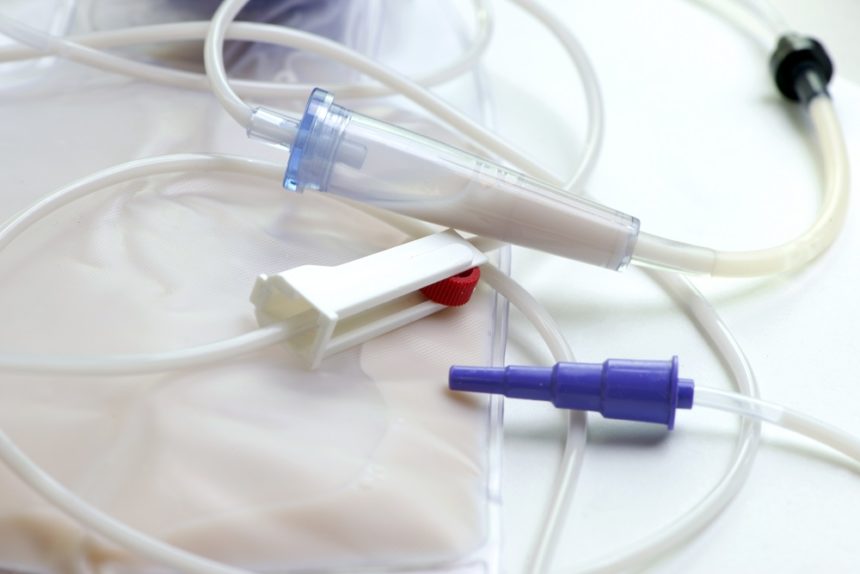In Morocco, elderly population with diabetes, hypertension, overweight/obesity, and surgery is at high risk of COVID-19. Approximately 7.6% of population is above 65 years of age in Morocco. Therefore, the usage of parenteral nutrition is increased for the balanced nutrient intake. The high prevalence of chronic diseases in this COVID-19 reflects the increase in 21% cases of chronic diseases in the Moroccan population.
In Morocco, the nutritional status is prevalent in hospitalized COVID-19 patients. Hence, it is recommended by the expert guidance that it is authoritative to screen and assess using validated assessment tools for nutritional risk in hospitalized COVID-19 patients. The parenteral nutrition should be administered after the ICU admission. Thus, rapid assessment, identification, and treatment of poor nutritional status is essential for improved clinical outcomes in severely and critically ill COVID-19 patients.
Impact on Price
The manufacturers developing parenteral nutrition components are trying to reduce the cost of parenteral nutrition products. The sales and cost were negatively affected by the COVID-19 pandemic after the onset of the second quarter. However, the COVID-19 pandemic has increased the demand and the price for the parenteral nutrition in Morocco.
Impact On Demand
The COVID-19 pandemic has caused the generic manufacturers to increase the supply for parenteral nutrition in the market to boost the patient’s immunity. Therefore, the demand and usage of parenteral nutrition has been increased. The chronic diseases, such as, malnutrition in infants and children below five years of age, and rise in cancer cases in Morocco have increases the demand of parenteral nutrition products.
For instance,
- In 2020, the demand for Ferinject (ferric carboxymaltose), an intravenous iron therapy has increased, despite the global impact of the COVID-19 pandemic. Ferinject continues to address the significant unmet medical need for the treatment of patients with iron deficiency and iron deficiency anemia in key therapy areas, such as the chronic heart failure.
Within the pharmaceutical and the healthcare domain, there has been an increased concern regarding the nutritional status of individuals in Morocco. As the COVID-19 pandemic is accelerating fast, it has raised pressure for the parenteral nutrition manufacturers to launch their existing or new products in Morocco and hence the demand for parenteral nutrition in Morocco would increase during the pandemic.
Impact on Supply Chain
The COVID-19 scenario has disrupted the entire supply chain and logistics department. The speed, resilience, and reliability describe the workforce of a company’s supply chain management system. The disrupted supply chain has caused acute shortages of handheld particle counters. The supply chains have slowly resumed following the restrictions in emerging states in Morocco. Fresh outbreaks of the virus can impede or even temporarily halt the individual production facilities and supply chains. Hence, the impact on the supply chain will be less. However, as the supply chain operations continue to improve, the COVID-19 recommendations continue to evolve.
For instance,
- In 2020, the VIFOR PHARMA guaranteed the uninterrupted supply chain for parenteral nutrition
- In 2020, Hikma Pharmaceuticals PLC continued to maintain the supply chain operations, for parenteral nutrition for cyanocobalamin
The government has been monitoring the supply chain operation facilities to minimize the crisis of the supply chain. The COVID-19 pandemic has shown multiple ways for enhancement in the supply chain units.
STRATEGIC DECISIONS BY MANUFACTURERS
The major players are trying to devise specific strategies, such as product launch, expansions, and partnerships to ensure the smooth running of the business to avoid risks, and increase the long-term growth of the sales of the market.
For instance,
- In August 2021, VIFOR PHARMA received approval from the European Society of Cardiology (ESC) for the use of Ferinject. The Ferinject is used for the diagnosis and treatment of acute and chronic heart failure. The Ferinject is intravenously administered. The approval received would result in the use of Ferinject in coordination with the new ESC HF guidelines.
- In September 2020, Otsuka Holdings,Co, Ltd received the post marketing approval for ENEFLUID Injection, the amino acid, glucose, electrolyte, fat, and water-soluble vitamin injection. The product is the first peripheral parenteral nutrition solution in Japan that combines fat and water-soluble vitamins in addition to glucose, electrolytes, and amino acids in a dual-chamber bag. The post marketing approval received resulted in robust supply of the carbohydrate parenteral nutrition.
- In September 2020, Baxter announced the U.S. F.D.A approval of Clinimix and Clinimix E for patients requiring parenteral nutrition. The novel Clinimix formulations contain up to 80 g/L of amino acids, the highest protein in any multi-chamber bag is available in the U.S. The approval received has provided timely treatment to individuals.
Conclusion
The impact of the novel COVID-19 virus is expected to leave a long term effect on each industrial sector. The growing prevalence of contagious infections and COVID-19 has necessitated a stable healthcare network and adequate emergency medical services (EMS). However, the regulatory framework, and the disruption in supply chain management are expected to hinder the market’s growth.
The nutritional risk is quite prevalent in children, and individuals suffering from COVID-19, due to hypermetabolism caused by inflammation, reduces food intake, mechanical ventilation, gastrointestinal intolerance, and other contraindications to nutrition support. Poor nutritional status is connected to inferior outcomes in hospitalized COVID-19 patients, including mortality and increased length of stay. In Morocco, the overall prevalence of malnutrition was 42.1% (moderate: 23.7%, severe: 18.4%).
Despite the indication of swift treatment on the horizon, the pandemic is here to live for a considerable amount of time. However, the treatment will remain the same, irrespective of the SARS- COV 2 coinfection. Hence, rapid assessment, identification, and treatment of poor nutritional status in Morocco is essential for improved clinical outcomes in severely and critically ill COVID-19 patients.
Although, clinical evidence is lacking to provide specific recommendations for nutritional management in COVID-19 patients in Morocco. The knowledge from clinicians and guidelines related to similar disease states may serve as a foundation until more clinical data is available.






